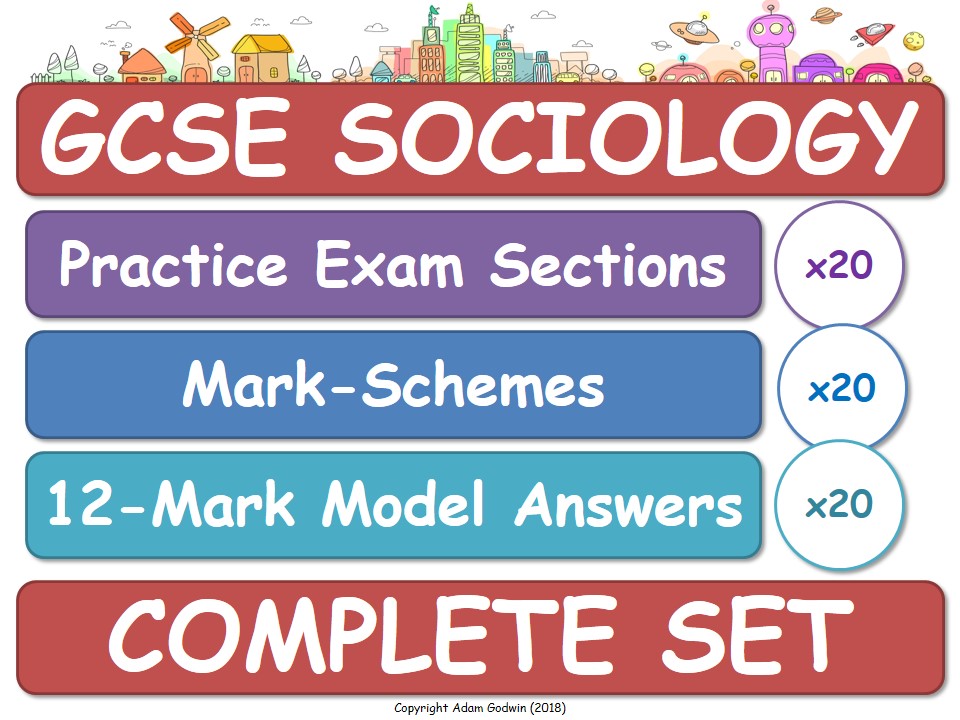Religion, Philosophy, Sociology & Ethics Resource Base
Resources for Religious Studies, Sociology, Philosophy, Ethics and Humanities. We specialise in making whole units and courses for ultimate convenience and time-saving. We always aim to make the best resource for a given topic: our goal is perfection and our resources have helped educate 1 million+ students!

![Crime & Deviance (20 Lessons) [ GCSE Sociology ]](https://d1e4pidl3fu268.cloudfront.net/cfb56889-d2bb-4377-8675-cc34ef17218f/BundleCover.crop_1595x1200_0%2C0.preview.jpg)




![Environmental Ethics & Humanity's Relationship With Nature: Philosophy Lesson (Ages 8-16) [P4C]](https://d1e4pidl3fu268.cloudfront.net/cef3fa7c-7cb3-4708-bce2-ec078e794041/EarthDayEnvironmentalEthicsTeachingResourcesP4CPhilosophyEthicsDebatesEthical.crop_606x454_0,51.preview.jpg)
![The Roman Empire - KS3 History - Workbook [Video-Learning Workbook] Ancient Romans](https://d1e4pidl3fu268.cloudfront.net/e962c75c-6bd1-42f1-b94e-f59db1ba07de/KS3HistoryWorkbookBookletHomeworkTeachingResources16.crop_960x718_0,0.preview.JPG)

![[P4C] The Philosophical Debate Generator - [200 Slide PPT with 'Randomiser'] PHILOSOPHY FOR KIDS](https://d1e4pidl3fu268.cloudfront.net/11400bc1-aef5-4b48-809e-fecb3c5ea189/Untitled222.jpg)

!['What Does it Mean to be Moral?' -KS3- Moral Philosophy, Animal Rights & Religion [7 Lessons]](https://d1e4pidl3fu268.cloudfront.net/5fb4f0e5-c049-4604-b7d0-6c9e92b5518b/Untitled44.jpg)

![KS3 Islam - Complete Unit [9 Lessons]](https://d1e4pidl3fu268.cloudfront.net/f0cc5c53-ba7d-43fd-8c58-d4f5fcc9fe33/Islam.jpg)



![Sociology of the Family (20 Lessons) [ GCSE Sociology ] Families](https://d1e4pidl3fu268.cloudfront.net/c1deaba7-482f-4c34-9c6e-89310be6565e/BundleCover.crop_1599x1200_0%2C0.preview.jpg)
![AQA GCSE Sociology [ 8192 ] - Scheme of Work for New Specification](https://d1e4pidl3fu268.cloudfront.net/cd3744e0-ff4d-4cb0-b648-901ef4aa2172/Cover.crop_960x717_0,0.preview.jpg)

![Detention Worksheets (x10) [Behaviour & Discipline Reflections ]](https://d1e4pidl3fu268.cloudfront.net/b7c814f1-dfe2-47ff-8a60-1f6a9661a714/BehaviouralReflectionWorksheets.crop_958x720_0,0.preview.jpg)


![Sociology of the Family (20 Lessons) WJEC / EDUQAS [ GCSE Sociology ] Families](https://d1e4pidl3fu268.cloudfront.net/4110f931-a019-4a45-b9fe-6257ddc505b8/wjeccovergcsesociology.crop_1595x1200_0,0.preview.jpg)
